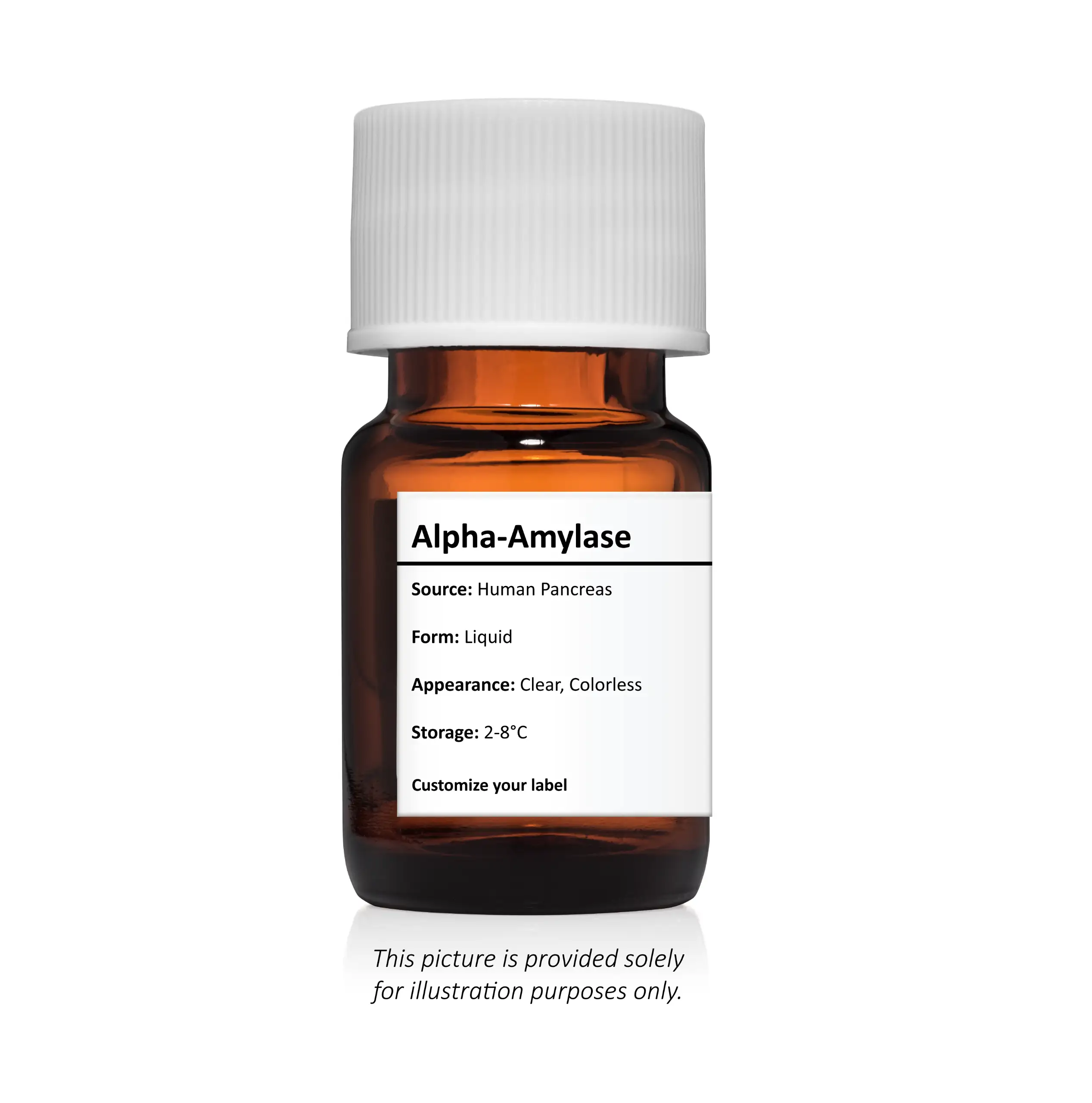Alpha-Amylase
Alpha-amylase is an oligosaccharide endoglycosidase, an enzyme that cleaves an internal glycosidic bond within a poly or oligosaccharide. In the case of alpha-amylase, 1,4 linkage between two glucose moieties, cleaving the C-O bond between the C1 carbon and the oxygen, is random.
| Product Specifications | |
|---|---|
| Source | Human Pancreas |
| Form | Liquid |
| Buffer | TRIS bufer containing NaCl, CaCl2, Protesae Inhibitor, and 0.1% Sodium Azide at pH 7.5 |
| Concentration | ≥ 100 IU/mL |
| Purity | Immunopure is ≥ 95% by SDS Page |
| Assay | Assay performed on Roche Cobas c501 |
| Storage | 2-8°C |
| Molecular Weight | 51.0 - 54.0 kDa |
| Apperaance | Clear, colorless |
| Associated Products | Lipase: Partially Purified |

Alpha-amylase requires calcium for activity although complete activity only occurs in the presence of certain anions such as Chloride, Phosphate and others. Many tissues can produce alpha amylase but the forms found in serum are most often from the pancreas and salivary glands. Several isoenzymes have been detected and characterized from these tissue sources. Alpha-amylase can be found in a variety of body fluids and some of the enzymes that can be found in urine from healthy individuals. The main purposes in testing amylase, especially when the appropriate symptoms are present, is to diagnose pancreatitis and other primary and secondary pancreatic pathologies. This can be made more specific by testing for amylase isoenzymes specific to the pancreas. However total amylase is still a very valuable diagnostic tool.
